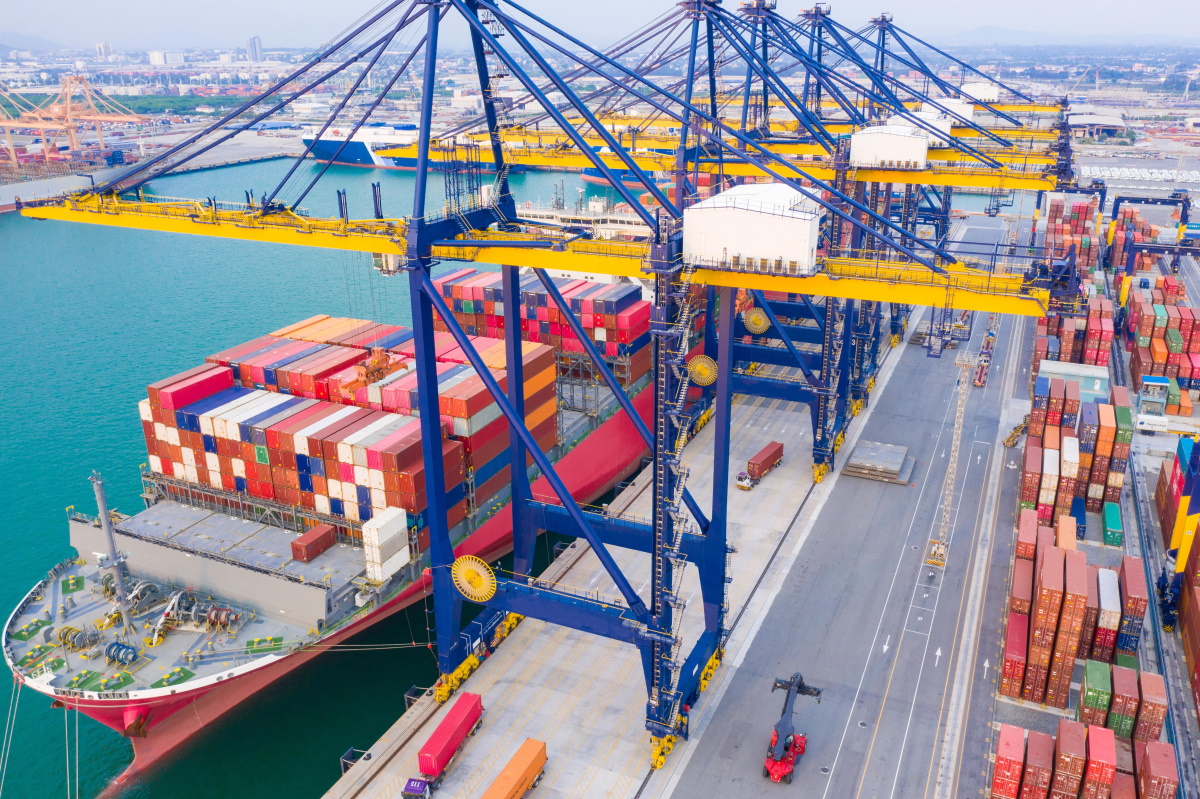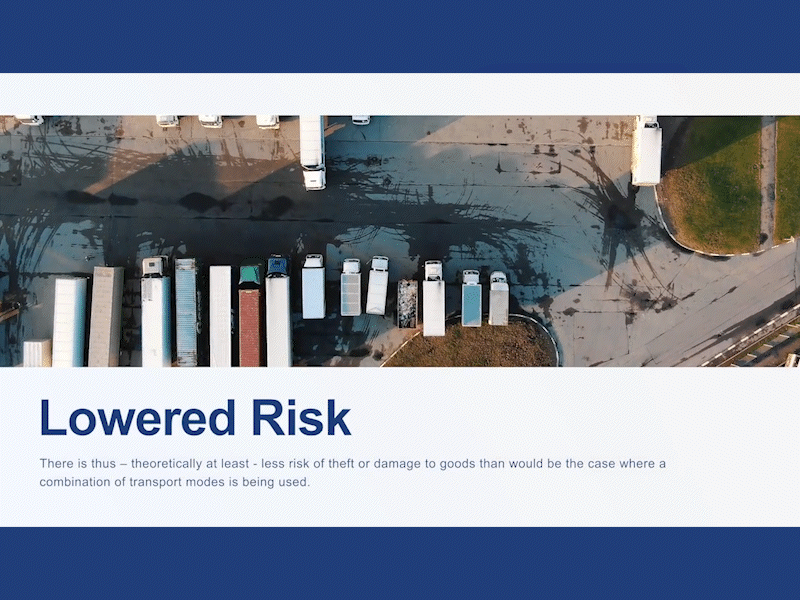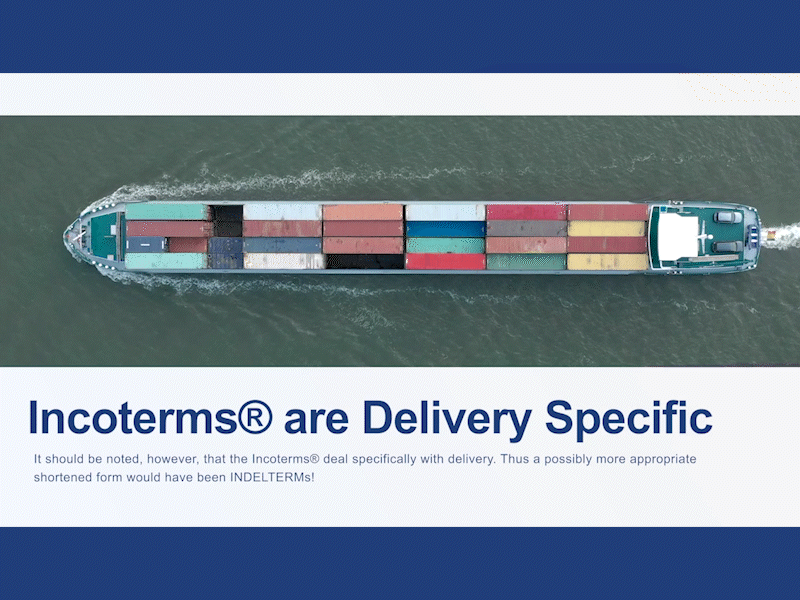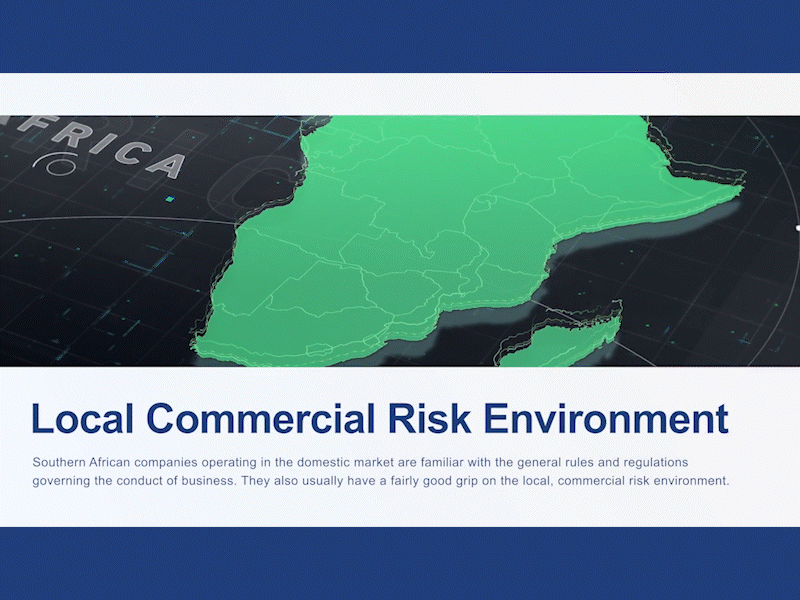Course 7: Export Legal Considerations
Module 5: Contracts for the Carriage of Goods Internationally
Module Rating
Module 5 of 5
~24 minutes
2 Topics
Multiple Assessments

In this module we cover the contractual arrangements between shippers and ship owners, air carriers, road/rail transport operators and multimodal transport operators. We go into detail for each mode of transport, breaking down the various circumstances for the use of a transport service and its associated vessel. We discuss the functions and legal standing of a bill of lading. The module also goes into the contributions of the Hague Rules, Hague-Visby Rules and the Hamburg Rules in regards to the ocean transport industry. The module also covers other crucial concepts such as the rights and obligations associated with each contract. The module concludes the topic with a full breakdown of the challenges associated with multimodalism. Click the icon below to begin your international legal environment training.
Who is this Module for?
Businesses & Organisations
looking to understand the nuances of contracts for the carriage of goods internationally
Governmental Organisations
that help facilitate or consult businesses on the International Legal Environment
Established export businesses
with export legal concerns for entering a new export market.
Individuals
looking to start trading in foreign markets.
Individuals & Students
who want to learn more about the export landscape, particularly in the Southern African region.
This module builds on the foundational export training covered in course 1, with a focus on the International Legal Environment. We begin the training module with a full explanation of the circumstances in which an exporter or importer might use the services of a common sea carrier, or a chartered vessel. This segways into a discussion on the functions and legal standing of a bill of lading. Once the bill of lading has been clarified we take a deep dive into the history of the ocean transport industry. This touches on important topics like the Hague Rules, Hague-Visby Rules and the Hamburg Rules. Each of which have had lasting impressions on the manners and processes involved in ocean transport as a whole.
The module continues with a breakdown of what a sea or air charter party is. This topic also goes into the various functions of each charter party. Once the respective charter parties have been identified and classified, the module begins a discussion on the functions and legal standing of an air waybill. Understanding the various contracts of carriage as they relate to each mode of transport is absolutely vital in making the right export legal considerations for the delivery of each consignment of goods.
We begin the training module with a full explanation of the circumstances in which an exporter or importer might use the services of a common sea carrier, or a chartered vessel. This segways into a discussion on the functions and legal standing of a bill of lading. Once the bill of lading has been clarified we take a deep dive into the history of the ocean transport industry.
The next topic in the module covers the purpose of the Montreal Convention. This segways perfectly into how to determine your rights and obligations under a typical road or rail transport document. Understanding what is expected of you as an exporter and how you should be filling out these crucial documents will aid you tremendously in both deciding a mode of transport and ensuring your export administration is in order. Once you have a clear understanding of the various elements to consider within contracts for the carriage of goods internationally, it is time to go through the challenges associated with multimodalism. Keep in mind that despite the many potential logistical influences of the transport of a consignment of goods, sometimes a simple service or updated process could lead to a new contract of carriage that better suits your export bottom-line. Often this results in a multimodal approach, as each mode of transport has its own advantages and disadvantages that may change over time.
This free module is part of a comprehensive course and is a vital source of information you need to the International Legal Environment. An understanding that is essential to any growing business or industry where the potential for international trade is high. Assuming you have completed the export foundational training, this module serves to improve your knowledge and understanding of the legal challenges posed in International Trade.
In the following modules we will be going into detail on the topics of international contracts, a typical contract of sale/purchase, the contracts of agency and distributorship. International Trade is a legal minefield when you consider all the countries and cultures involved in a typical export transaction. By completing these modules, your fundamental understanding of all aspects of export legal considerations will improve immensely. Empowering yourself and your business to take on the legal challenges posed by the International Environment.
Topic 1: Contractual Arrangements for the Carriage of Goods by Sea
Topic 2: Contracts for the Carriage of Goods by Air, Road, Rail and Multimodalism
This module is one in a series of modules to form a comprehensive course covering export legal considerations. Every course and subsequent module has been developed and curated by the International Trade Institute of Southern Africa and Trade Forward Southern Africa. The entire training course is free of charge and can be completed by individuals and organisations alike. This module and subsequent course lays an essential foundation for trade internationally. If you know anyone that would be interested, share this module with them using the link below. We would also love your feedback, so drop us a review once you have completed the module.






